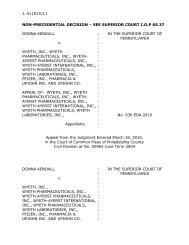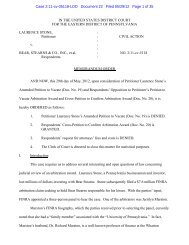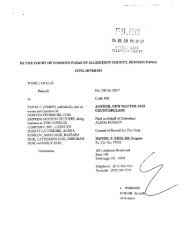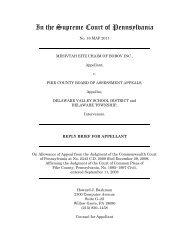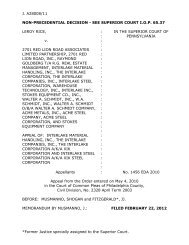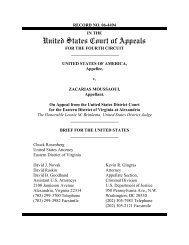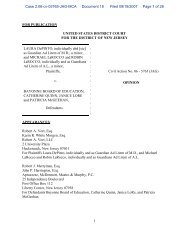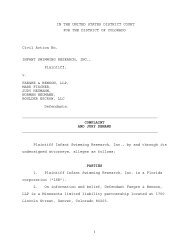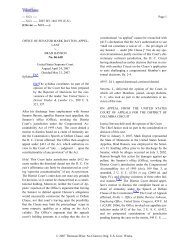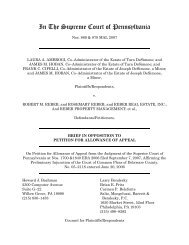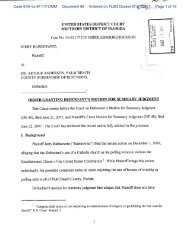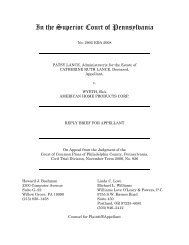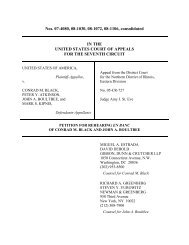In the Superior Court of Pennsylvania - How Appealing
In the Superior Court of Pennsylvania - How Appealing
In the Superior Court of Pennsylvania - How Appealing
Create successful ePaper yourself
Turn your PDF publications into a flip-book with our unique Google optimized e-Paper software.
claims <strong>of</strong> <strong>the</strong>se 14 plaintiffs inflicts any actual prejudice on <strong>the</strong>m. <strong>In</strong> fact, <strong>the</strong>y are<br />
currently defending numerous lawsuits that contain claims indistinguishable from<br />
<strong>the</strong> claims in this case, both in <strong>the</strong> Philadelphia <strong>Court</strong> <strong>of</strong> Common Pleas and in<br />
federal and state courts throughout <strong>the</strong> United States. As noted above, courts<br />
elsewhere have uniformly rejected defendants’ statute <strong>of</strong> limitations defense on<br />
essentially <strong>the</strong> same record as <strong>the</strong> record in <strong>the</strong>se cases. Although statutes <strong>of</strong><br />
limitations unquestionably serve important purposes, defendants have failed to<br />
show, and indeed cannot show, that any <strong>of</strong> those purposes are implicated here.<br />
By contrast, <strong>the</strong> harmful “real world” consequences <strong>of</strong> <strong>the</strong> holding that<br />
defendants ask this <strong>Court</strong> to reach cannot be ignored. Defendants ask this <strong>Court</strong> to<br />
hold that every woman who is diagnosed with breast cancer must immediately<br />
begin investigating whe<strong>the</strong>r some third–party is or may be responsible for causing<br />
<strong>the</strong> cancer, even though breast cancer may be caused by a variety <strong>of</strong> factors for<br />
which no third–party may be responsible. <strong>In</strong> each <strong>of</strong> <strong>the</strong>se 14 consolidated cases, a<br />
jury could reasonably find that <strong>the</strong>se plaintiffs had no obligation to investigate<br />
whe<strong>the</strong>r <strong>the</strong>ir breast cancer was caused by any third–party until <strong>the</strong> results <strong>of</strong> <strong>the</strong><br />
WHI study had become public. Moreover, a jury could also similarly find that a<br />
reasonable pre–WHI investigation would not have disclosed anything different from<br />
what defendants’ own product labels had disclosed, which would not have notified<br />
<strong>the</strong>se women that defendants’ products caused or may have caused <strong>the</strong>ir breast<br />
cancer.<br />
– 41 –



